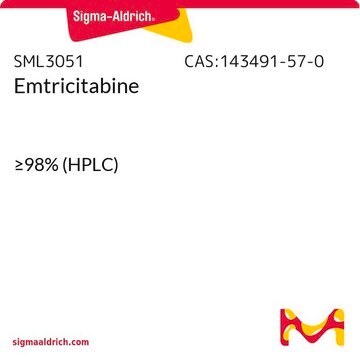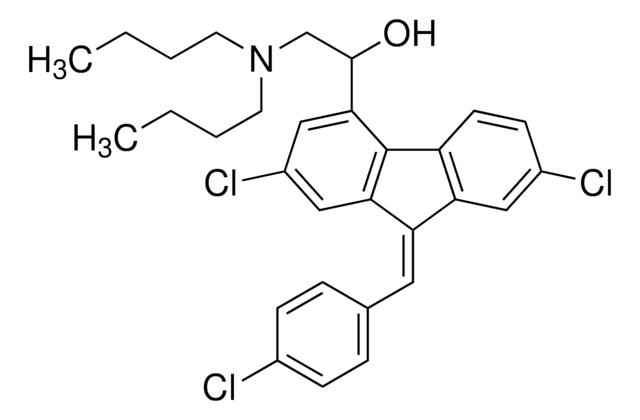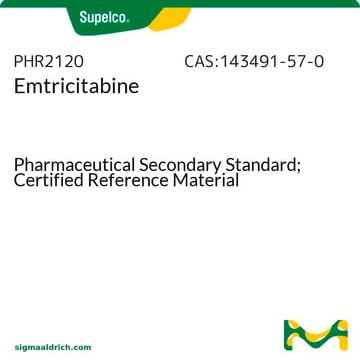1356836
USP
Lamivudine
United States Pharmacopeia (USP) Reference Standard
Synonym(s):
2′,3′-Dideoxy-3′-thiacytidine, 3TC, Epivir, Epivir-HBV, Heptovir, Zeffix
About This Item
Recommended Products
grade
pharmaceutical primary standard
API family
lamivudine
manufacturer/tradename
USP
application(s)
pharmaceutical (small molecule)
format
neat
SMILES string
NC1=NC(=O)N(C=C1)[C@@H]2CS[C@H](CO)O2
InChI
1S/C8H11N3O3S/c9-5-1-2-11(8(13)10-5)6-4-15-7(3-12)14-6/h1-2,6-7,12H,3-4H2,(H2,9,10,13)/t6-,7+/m0/s1
InChI key
JTEGQNOMFQHVDC-NKWVEPMBSA-N
Looking for similar products? Visit Product Comparison Guide
General description
Application
- Abacavir and Lamivudine Tablets
- Abacavir, Lamivudine and Zidovudine Tablets
- Lamivudine
- Lamivudine and Zidovudine Tablets
- Lamivudine Oral Solution
- Lamivudine Tablets
Biochem/physiol Actions
Analysis Note
Other Notes
related product
Certificates of Analysis (COA)
Search for Certificates of Analysis (COA) by entering the products Lot/Batch Number. Lot and Batch Numbers can be found on a product’s label following the words ‘Lot’ or ‘Batch’.
Already Own This Product?
Find documentation for the products that you have recently purchased in the Document Library.
Our team of scientists has experience in all areas of research including Life Science, Material Science, Chemical Synthesis, Chromatography, Analytical and many others.
Contact Technical Service






